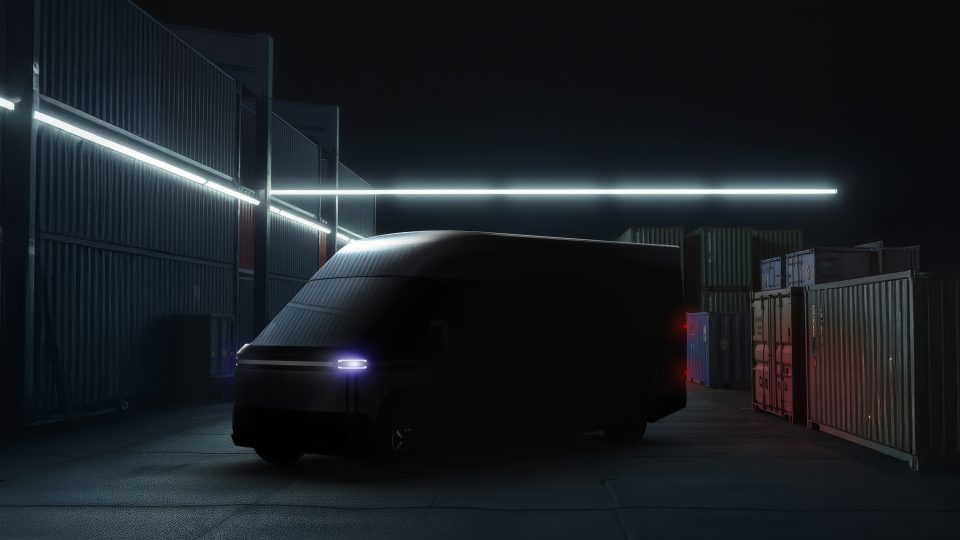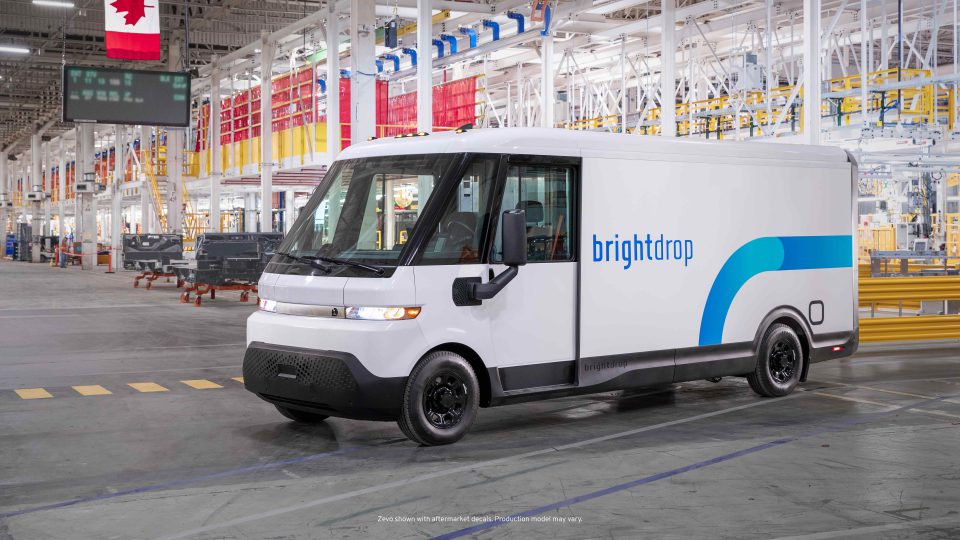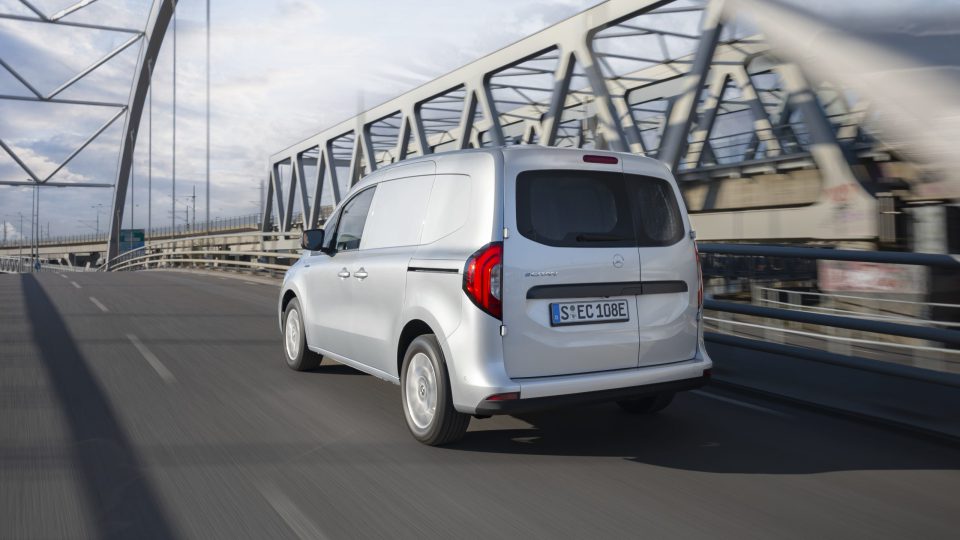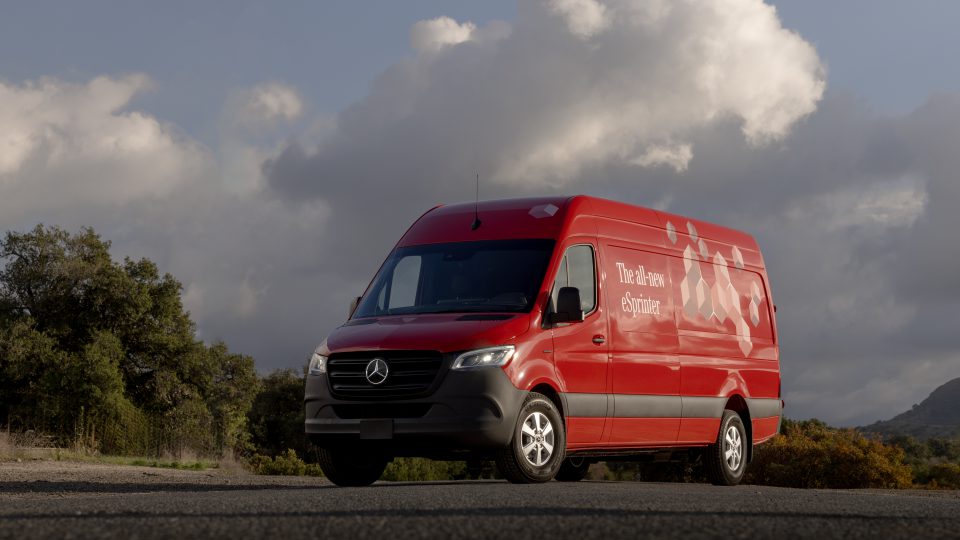Volkswagen ID. Buzz electric van is ending trials. World premiere on March 9
The pre-production fleet is currently running all over Europe: from Paris to London; from Barcelona to Amsterdam and Hamburg. Production of the ID. Buzz starts in the first half of this year, and the European launch follows just a short time later in the autumn. The ID. Buzz is also set to be marketed in the USA.
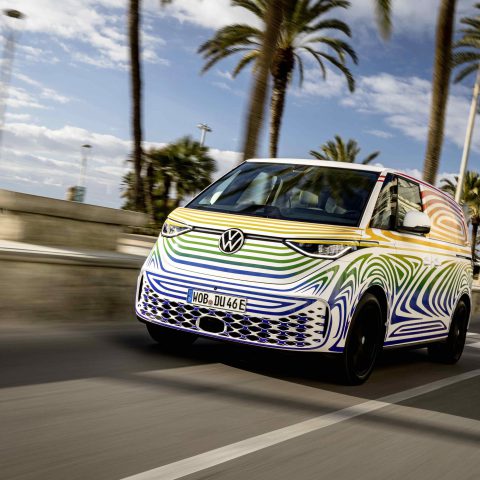
Volkswagen ID. Buzz electric van will be launched with a world premiere on March 9, 2022. The van is currently ending its trials stage. It’s already been five years since the presentation of the concept, in January 2017, at the Detroit Motor Show. During these five years, the concept car has been transferred to full production. According to Volkswagen, the pre-production fleet is currently running all over Europe: from Paris to London; from Barcelona to Amsterdam and Hamburg. «Before we start full production of the ID. Buzz, these final trials with vehicles practically matching the ultimate full-production specification provide us with indispensable input for the final fine-tuning», said Kai Grünitz, Head of Vehicle Development at Volkswagen Commercial Vehicles.
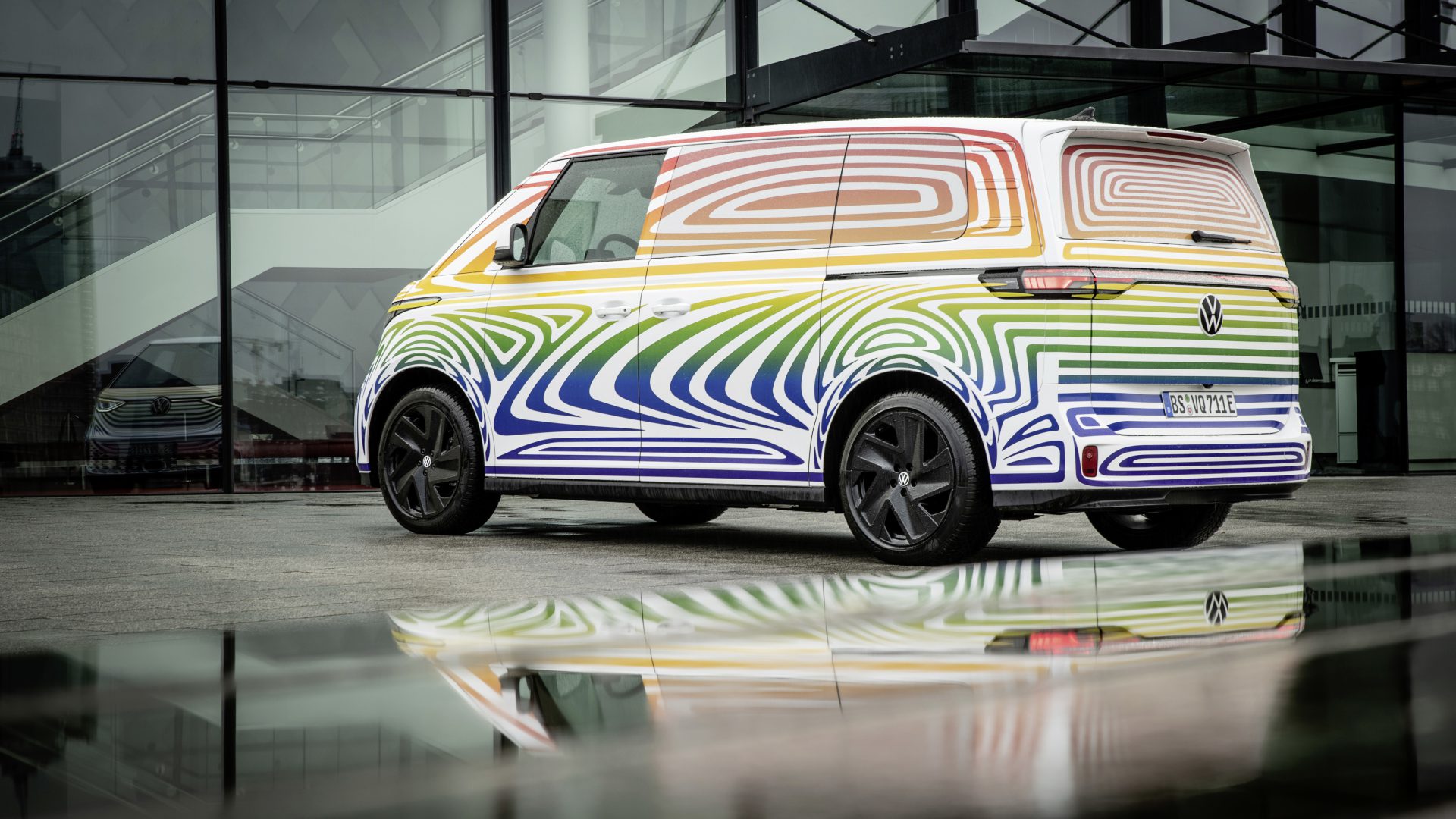
Volkswagen ID. Buzz electric van, the similarities with the Bulli
Both ID. Buzz versions – the 5-seater passenger car and the Cargo van – draw on the stylistic elements of the T1, the original Bulli van (here’s our post on the official launch of the latest version of the Bulli, the T7, last year). According to the manufacturer, the similarities include extremely short vehicle body overhangs, maximum utilization of space on a minimal footprint, the classic division of the vehicle body design into an upper and lower level, plus the unmistakable face with its V-shape.
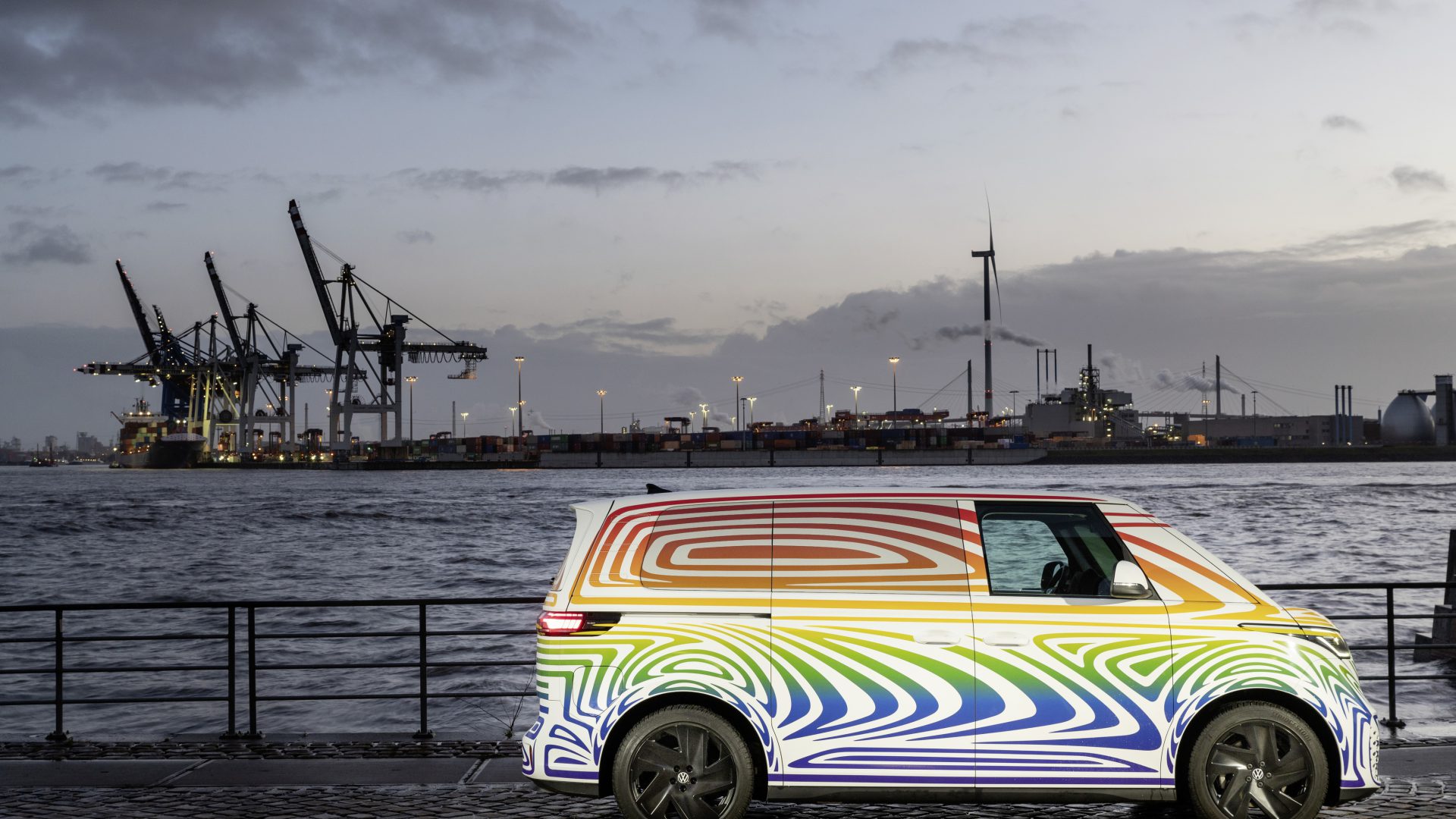
Relying on the Modular Electric Drive Kit (MEB)
On the engineering front the new model line is based on the Volkswagen Group’s Modular Electric Drive Kit (MEB). Both ID. Buzz versions are launching this year with a high-voltage lithium-ion battery providing gross energy content of 82 kWh (net: 77 kWh). The battery supplies a 150 kW electric motor, which is integrated in the rear axle, which it also drives. The top speed is electronically limited at 145 km/h. Official figures for range are not yet available. For the one part, the electric motor builds up its maximum torque of 310 Nm from a standing start. And for the other, these dynamic components are joined by the vehicle body having a very low centre of gravity, as the battery is located well down in the sandwich floor. By virtue of its design, the ID. Buzz has another advantage: the electric Bulli’s turning circle is only just over 11 metres.
Measures and next steps
The versions of the ID. Buzz and ID. Buzz Cargo with the standard wheelbase (2,988 mm) launching this year are just 4,712 mm long. The bus, which is generously fitted with glass all round, is 1,937 mm high; in the case of the van, it is 1,938 mm due to slight differences in the chassis (T6.1: 1,970 mm). The two ID. Buzz vehicles are 1,985 mm wide (excluding wing mirrors); the new model is thus 81 mm wider than the T6.1. With rims in the sizes 18 to 21 inches, the new model line runs on big wheels (750 mm diameter).
Production of the ID. Buzz starts in the first half of this year, and the European launch follows just a short time later in the autumn. The ID. Buzz is also set to be marketed in the USA.




